America's Water Woes
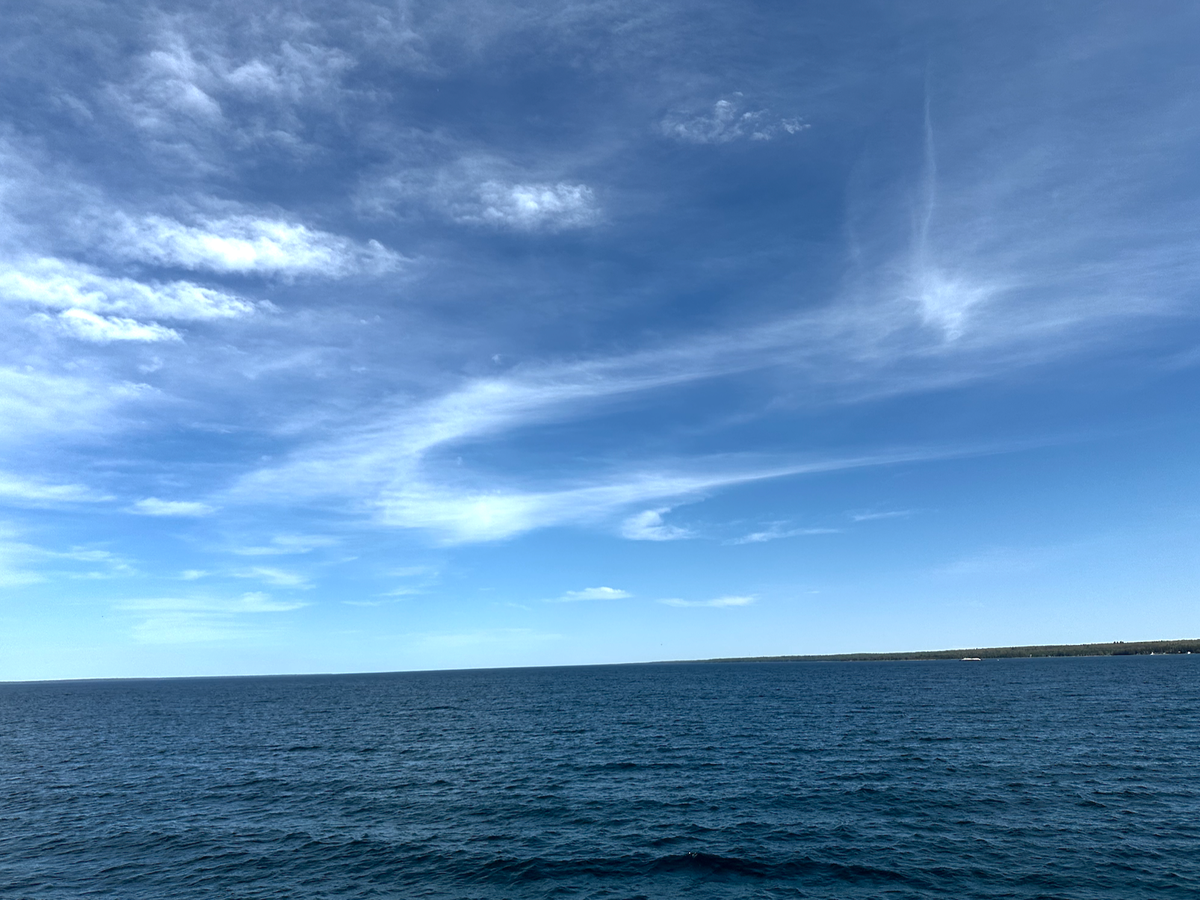
Water is seeping into a lot of the news these days. We should pay attention. Much like with the climate crisis, the American water crisis is a story of decades of greed and inaction. An approach that works well until it doesn't.
First up, an issue that will haunt this country. How the oil and gas industry decided to use huge amounts of clean water, turn it into toxic waste and then just blast it underground and pretend that was a solution.
“Words can’t describe how far behind they are and how bad they are doing at this,” he said. “There’s going to be more of this, not just in Pecos County. You’re going to see it all over the place.”
The oil industry better hope Schuyler Wight is wrong. But he isn't. And the oil industry has big plans to not only keep injecting toxic water underground but also to do the same with a bunch of carbon dioxide. Slow learners.
What if they use all of the good water to produce oil and gas?
“Out here in West Texas, the one thing that they’re so dependent on to grow crops is water,” said Melanie Barnes, a senior research associate in geosciences for Texas Tech University. “That’s the one thing that really controls whether you can economically survive out here.”
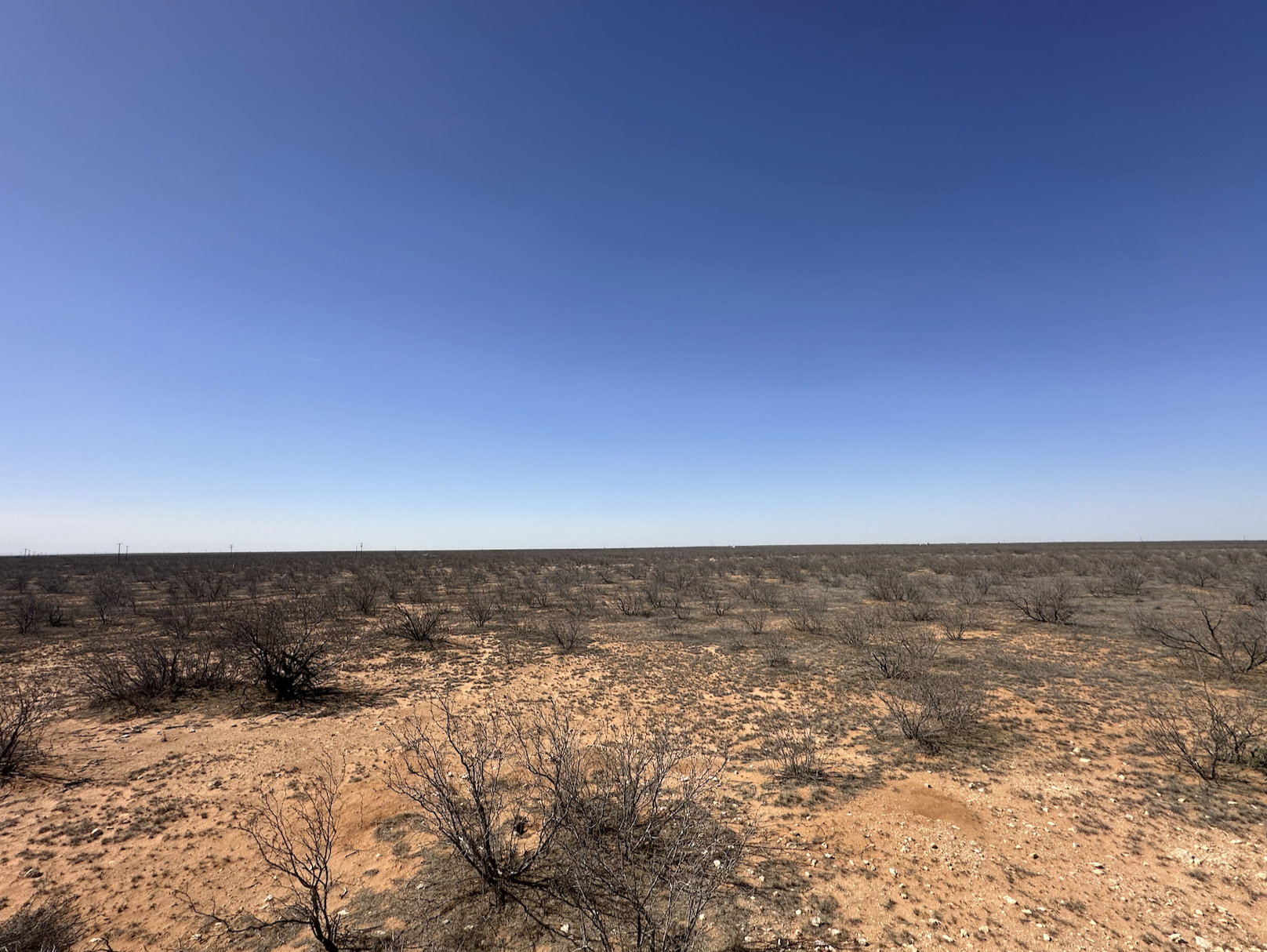
Texas is leading the country in Ogallala aquifer depletion. There is no good end to this story.
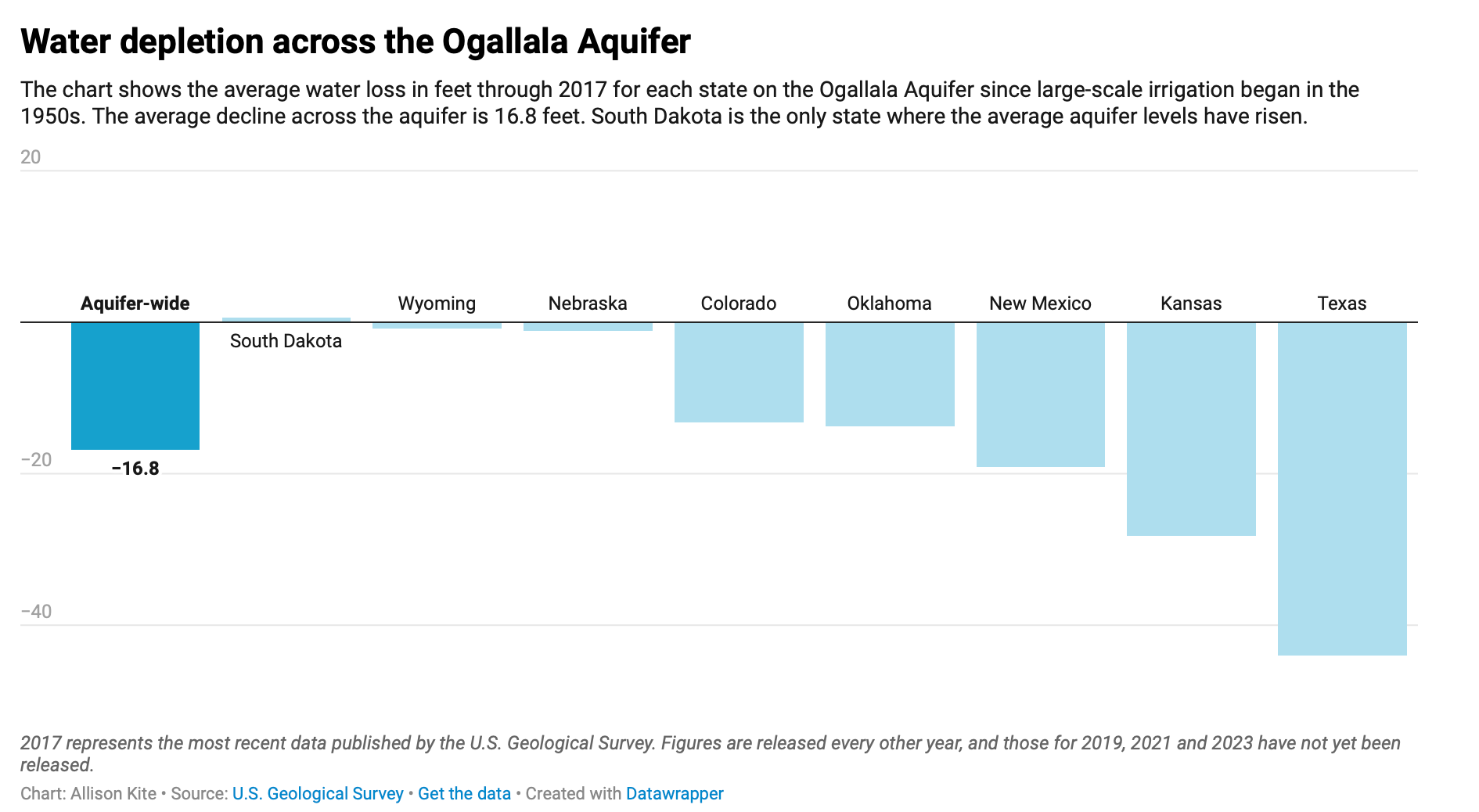
The Ogallala provides water for a lot of crops grown on what is called "dryland." In Kansas we learn "it's time for a reckoning." Reckonings are rarely good.
"Crop irrigation accounts for 85% of all water use in Kansas — even more in western Kansas.
But one farmer said he can’t farm his sandy soil without irrigation. After the meeting, he declined to be named, saying he could get in big trouble for sharing his real feelings.
Local farmer Steve Sterling interjected at the first meeting in Garden City to say conservation planning “should have been done 40 years ago.”
A farmer who would be in "big trouble" if he shared his true feelings. I predict this type of environment won't lead to a solution. Sounds like the people better organize or the corporate farmers will suck them dry and then...walk away.
The oil industry's abuse of water and waste and the agriculture industries overuse of aquifers aren't directly linked to climate. They would have happened even if burning oil didn't release CO2 and producing it didn't release methane. But climate change certainly doesn't help.
The financial costs of drought in Texas have risen rapidly over recent decades, according to a new analysis of federal crop insurance data.
Meanwhile, the oil and aviation industry's favorite decarbonization "solution" is sustainable aviation fuel. Even if sustainable aviation fuel was a real decarbonization solution (it isn't), I have one question for those who say it is. How? Where will you get the water to grow the corn to make all of this? The people farming the current corn know they are running out of water. And now you plan to more than double that? How?
If the U.S. were to reach its stated goal of 35 billion gallons of SAF using ethanol — which is currently its leading approach — this would require 114 million acres1 of corn. That’s 20% more than the total area currently planted with corn in the United States for all purposes.
There isn't enough water to support current agriculture in the U.S. Anyone can see that. Sustainable aviation fuel would make that problem much worse. But the reality is it will never happen. It simply can't. The water isn't there to grow the corn and soybeans.
Meanwhile, growing all of that corn and soybeans is poisoning more fresh water, which unfortunately is being made worse by years of drought.
A buildup of nitrate in farm fields that has likely resulted from Iowa’s longest-running drought in 70 years has set the stage for a potentially massive uptick in stream pollution, state water-quality observers say.
Research has shown that nitrogen fertilizer that goes unused by crops can be quickly flushed from those fields after a drought year, and Iowa’s drought has been ongoing for more than three.
Chris Jones has done great work reporting on this issue including his book Swine Republic which is in my stack of books to read. His reporting work may have cost him his university job so we should all buy a copy of his book if we can.
And while much of the country struggles with drought, thanks to climate change, too much water is also a big problem for many in the U.S. The current woes of Hollywood, Florida sum up so many of the challenges coastal communities now face. Repeated flooding that has led to insurance companies getting out. One person in this story on the recent flood no longer has insurance that covers the contents of the house in case of a flood. She had hoped to move but couldn't. That is likely no longer an option. Another person interviewed states he has no insurance for his flooded house. The story mentions that the city's adaptation plans (pumps) can't keep up with the flood waters. 20 inches of rain in one storm will do that. And despite all of the evidence of what is happening (and the looming reality of the Thwaites glacier and the impact it will have on these communities in the future), the news anchor states that they are going to need money to invest in more infrastructure. Sadly, that ship has sailed. What would that be? More pumps?
One resident says, “I keep telling the city of Hollywood it can’t continue to happen." I understand the sentiment but the reality is that this isn't up to the city of Hollywood anymore. The only likely outcome is the one that is currently happening in Panama where, "the sea was coming in every year.”
This country needs some smart national water policy. But what it is getting instead is plans for the Texas oil industry to simply dump its toxic waste into local waterways. While Florida cities think the answer is more pumps.
Slow learners.
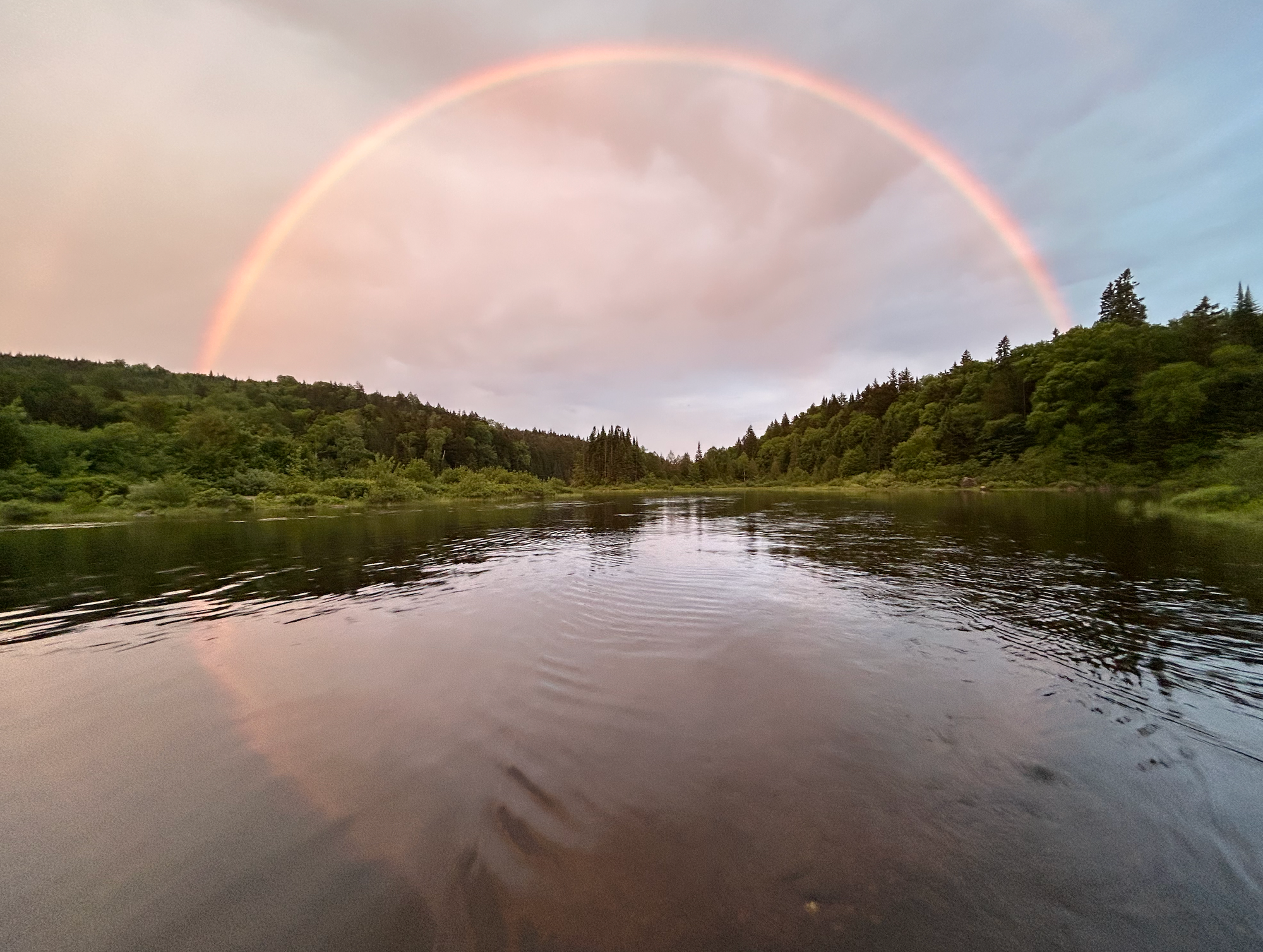
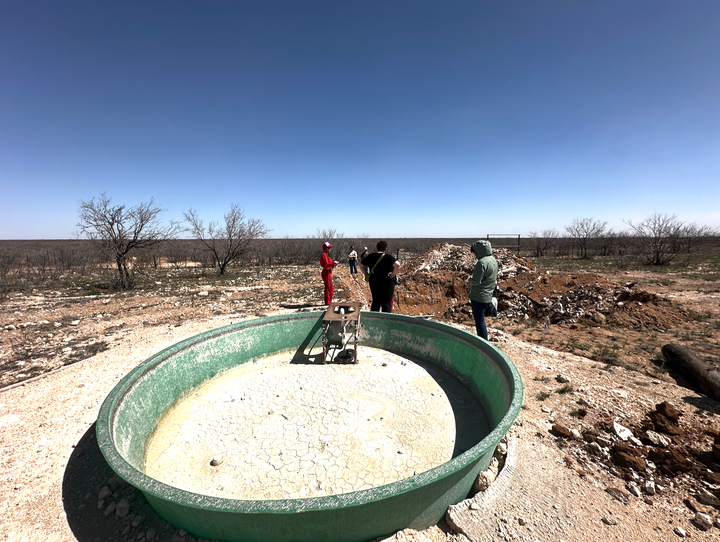

Comments ()